Summary #9
EDITORIAL DEEP VIEW EUROPE INSIGHT INTERVIEW OVERVIEW SPAIN IN FREEDOM: 50 YEARS OVERVIEW REVIEW SIGHTSEEING
EDITORIAL DEEP VIEW EUROPE INSIGHT INTERVIEW OVERVIEW SPAIN IN FREEDOM: 50 YEARS OVERVIEW REVIEW SIGHTSEEING
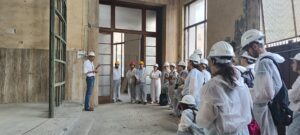
Emanuele Morezzi, Politecnico di Torino; Chiara Mariotti, Università Politecnica delle Marche; Leila Signorelli, Alma Mater Studiorum Università di Bologna; Alessia Zampini, Alma Mater Studiorum Università di Bologna Cover image: Experimental lab at the former House of the Fascist Party (Predappio, Italy). The project Dissonant Heritage and War. Conservation and Communication of a Difficult Legacy (Co.Co.War) …
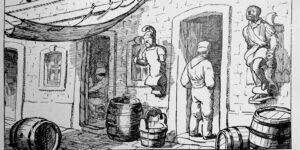
Oriol López Badell, European Observatory on Memories (EUROM) Cover image: Illustration of the misnamed Negre de la Riba at the pier, published in Visions barcelonines, 1760–1860. Els barris de la Ciutat by Francesc Curet and Lola Anglada, 1953. The misnamed Negre de la Riba was, for decades, one of Barcelona’s most popular figures. Its origins …

Akiko Tsuchiya and Aurélie Vialette (eds.) Albany: State University of New York Press, 2025. 320 pp. ISBN 9798855800845 (hardback) A review by Jo Labanyi, New York University As the editors of this volume note, Spain has been slow to recognize the human rights abuses, including slavery, resulting from its former empire, in part because of …

David González, European Observatory on Memories (EUROM) Marco (2024), directed by Aitor Arregi and Jon Garaño, is a drama that delves into the complex figure of Enric Marco Batlle (1921–2022), portrayed with great intensity by Eduard Fernández. For many years, Marco was regarded as a survivor of the Nazi camps—a false identity that he himself …
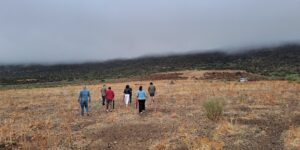
Guillermo León Cáceres, National Distance Education University (UNED) Cover image: A Travelling Seminar with the EUROM Team and AMECADEC (2024). Photograph: EUROM A Brief History of Castuera Concentration Camp In March 1939, as the Spanish Civil War drew to a close, the Francoist military authorities built a concentration camp for prisoners on the outskirts of …

Dietmar J. Wetzel, MSH Medical School, Hamburg & University of Basel Cover image: Salvador Allende Square, Paris (7th Arrondissement), November 12, 2023, March against anti-Semitism. National Rally elected officials, Marine Le Pen and Jordan Bardella surrounded by journalists. Siren-Com, CC BY 4.0, via Wikimedia Commons. 1. Introduction – Memory in a fragmented Europe1 In an …

Kostis Kornetis, Universidad Autónoma de Madrid. Academic Advisor of the Commissioner for the Commemoration of “Spain in Freedom: 50 years” Cover image: Screenshots from the video of the campaign Democracy Is Your Power, presented as the closing highlight of the Spain in Freedom commemoration. The word ‘restless’ in this article’s title echoes Inquietud. Libertad y …
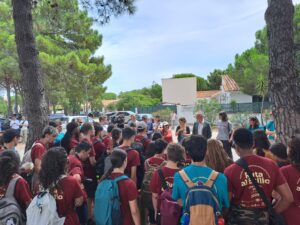
By Carmina Gustrán Loscos, Commissioner for the Commemoration of “Spain in Freedom: 50 years”. 20 November 2025 marks the fiftieth anniversary of Francisco Franco’s death. At the Commission of “Spain in Freedom: 50 years”, we focus on the possibilities that his passing created, on the long and difficult journey towards regaining freedom and democracy. In 2025, we remember the beginning of that collective achievement; we celebrate the prosperous, diverse and democratic nation that we have become. Also, we would like to invite all citizens to join us in reflecting on the future, on what kind of country and what kind of democracy we aspire to build together.
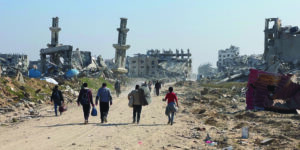
Interview with Amos Goldberg Amos Goldberg (Jerusalem, 1966) is a professor in the Department of Jewish History and Contemporary Jewry at the Hebrew University of Jerusalem and a fellow at the Van Leer Jerusalem Institute. Goldberg has held research fellowships at international institutions such as Cornell University, the United States Holocaust Memorial Museum, CUNY and …